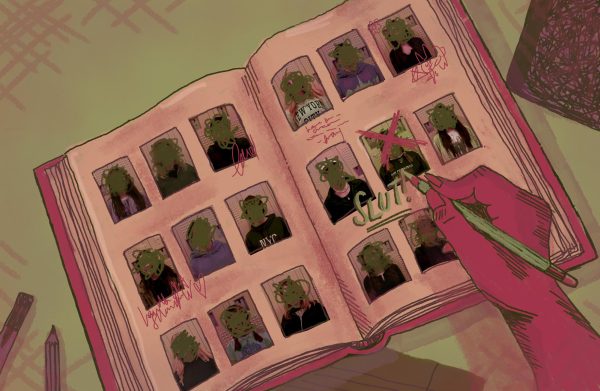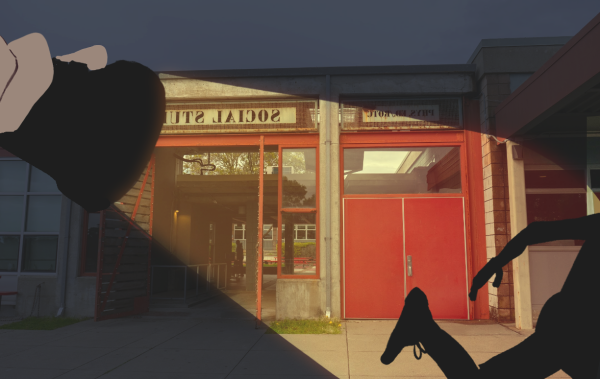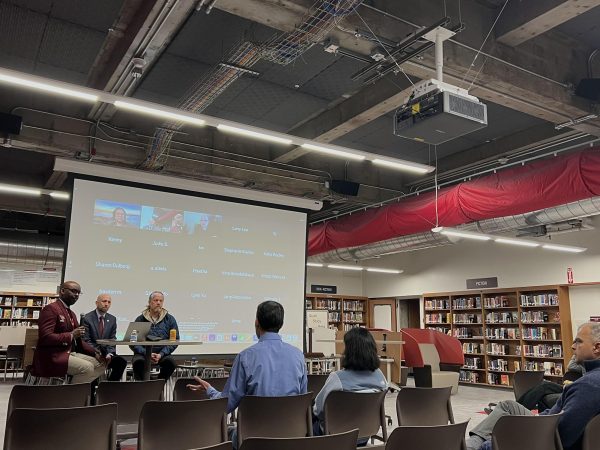School to offer new ethnic studies elective for freshmen
Originally published on May 28, 2015
Over a decade after the last multicultural studies course was dropped from the school’s course offerings, plans are in the works to reinstate a similar class next year.
In response to a school board resolution, the school will begin to offer one Ethnic Studies section as an elective for incoming freshmen starting in the 2015–16 school year. Taking the new course could affect the students’ options for enrolling in Advanced Placement social science courses.
Ethnic Studies is a course that teaches students about their identities, families and community histories through studying the history of different ethnicities and cultures. The course has been offered as a pilot class for the past five years at select San Francisco Unified School District schools, such as George Washington High School. The success of the classes led the San Francisco Board of Supervisors to vote unanimously to pass a resolution last December requiring every SFUSD high school to offer an ethnic studies class in the 2015–16 school year.
“As students start to learn about systems of oppression, they can release internalized oppression and be what they want to be instead of what society says they should be.”
Korean teacher Soo Park, who has a B.A. in social studies education, has been appointed to teach the course. No one in the social studies department has any experience teaching Ethnic Studies, so Park will receive further training at a SFUSD workshop in August after the curriculum has been developed, according to social science department head Alice Kwong.
The curriculum will focus on multiple ethnicities’ experiences with systems of oppression by teaching students about the “Three ‘I’s of Oppression”: interpersonal, internalized and institutionalized, according to San Francisco Board of Education Commissioner Sandra Fewer. “As students start to learn about systems of oppression, they can release internalized oppression and be what they want to be instead of what society says they should be,” she said.
Students who have taken the pilot ethnic studies course have shown positive results. An early, informal study done by Stanford University with a small sample size shows that students who took the class had a higher grade point average, and that males in particular had improved math and science scores, according to Fewer.
Social science teacher Kristen Lubenow believes that the ethnic studies course could help address the achievement gap through an in-depth teaching of the civil rights movements of different ethnicities. “The history of non-whites and non-Europeans has been marginalized in the current social studies classes — there are only small units in AP U.S. History, which a lot of of people feel is tokenism — and Ethnic Studies tries to bring a lot of aspects of other cultures back,” she said.
This would allow for a greater focus on the role of ethnicity in life, which will benefit students because currently, there is only a peripheral focus, according to social science teacher Richard Girling. “There needs to be a forum for students to talk about race and the role of racism in American society,” he said.
Implementing the class would give students an opportunity to learn about their own heritage, according to Fewer. “Ethnic Studies teaches acceptance, so I hope that students will take away a greater sense of self, of the people around them and of the world,” she said.
“The history of non-whites and non-Europeans has been marginalized in the current social studies classes and Ethnic Studies tries to bring a lot of aspects of other cultures back.”
However, freshmen who take Ethnic Studies may have fewer options for AP social studies courses. They will be required to fulfill their World History requirement in their sophomore year because there is not enough room in their freshman year schedules to take both Ethnic Studies and World History. Those students will be unable to take a Advanced Placement social science course until junior year because World History, a prerequisite to any social science AP class, teaches the skills that students will need in a social science AP course, according to counselor Jonathan Fong.
This scheduling conflict could affect Lowell in the long run if the course becomes a requirement: there is a amendment in the ethnic studies resolution stating that in five years’ time, legislators will examine the effects of the ethnic studies course to determine if the course work should be implemented as a graduation requirement. The clause can be interpreted in multiple ways, including requiring the ethnic studies course as a graduation requirement. The requirement could also be met by integrating the ethnic studies curriculum into existing social science classes, according to Fewer.
If the former occurs, then all students will be unable to take an AP social science course until their junior year. Juniors and seniors who wish to take an AP social studies elective may then have to take two history courses each semester because of the United States History, American Democracy and Economics requirements, respectively. With an already full schedule, junior and senior students could be discouraged from taking an AP social science elective. Enrollment in AP social science courses would then be affected, which would result in cuts to the course offerings of AP World History, AP European History, AP Human Geography and AP Psychology.
“Freshmen have disparities in their skillset when they enter high school, so the curriculum must address skills that will make all students successful.”
However, there is a possibility that the new ethnic studies curriculum could include the skills necessary to allow Ethnic Studies to serve as a prerequisite to AP social science courses, according to Lubenow.
Lubenow and fellow social science teacher Rebecca Johnson, are on the district-wide committee creating the ethnic studies curriculum. Lubenow said she hopes that the curriculum will help develop the basic skills necessary to succeed in school because Ethnic Studies is aimed toward freshmen. “Freshmen have disparities in their skillset when they enter high school, so I feel very strongly that if Ethnic Studies becomes a core class, the curriculum must address skills that will make all students successful, such as research skills and how to write and support a thesis,” Lubenow said.
The teachers on the ethnic studies curriculum committee are therefore aiming to make Ethnic Studies a class that will leave a positive impact on all students. “We hope to guide the class in a direction that makes it beneficial for everybody,” Lubenow said.











